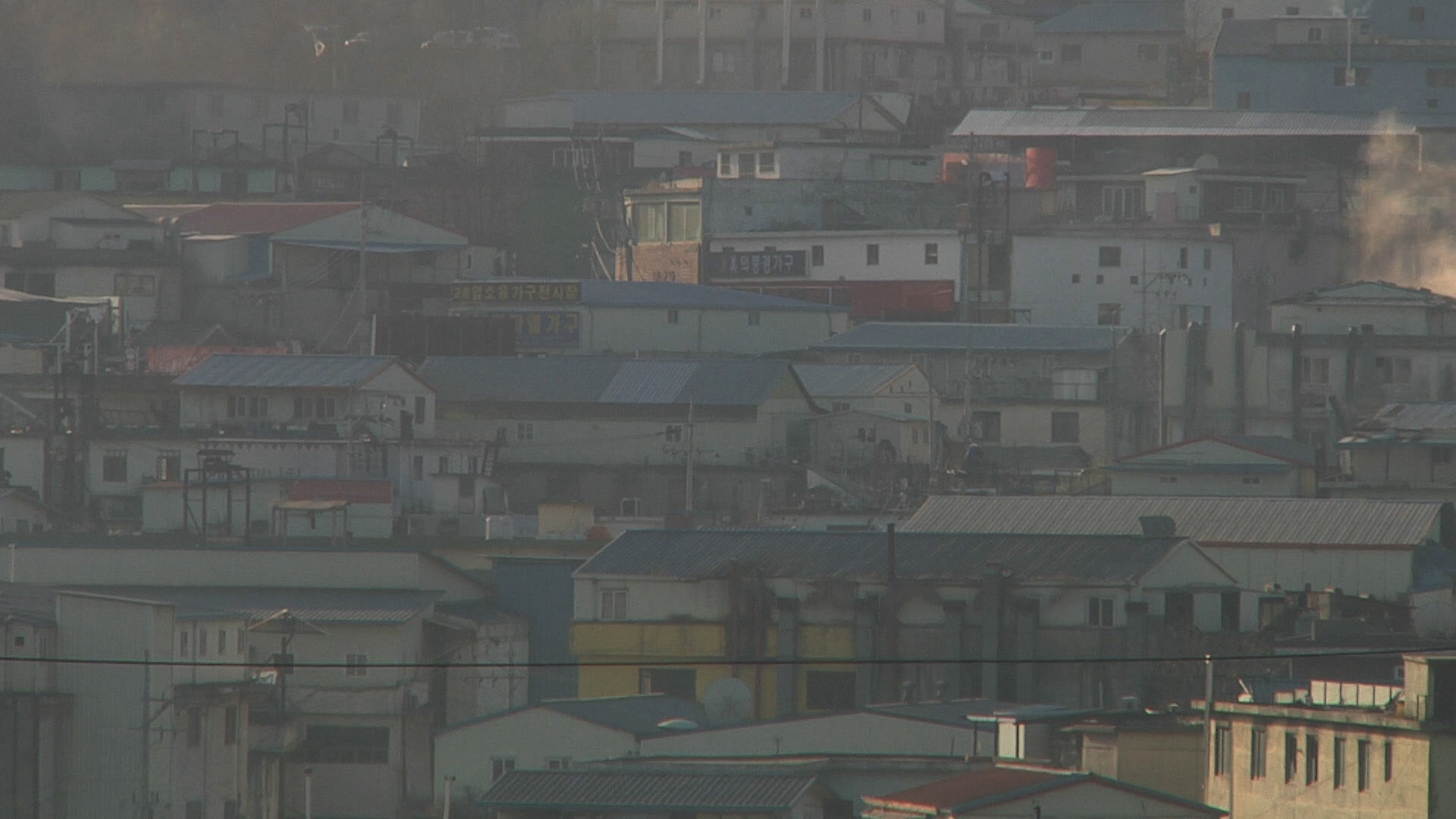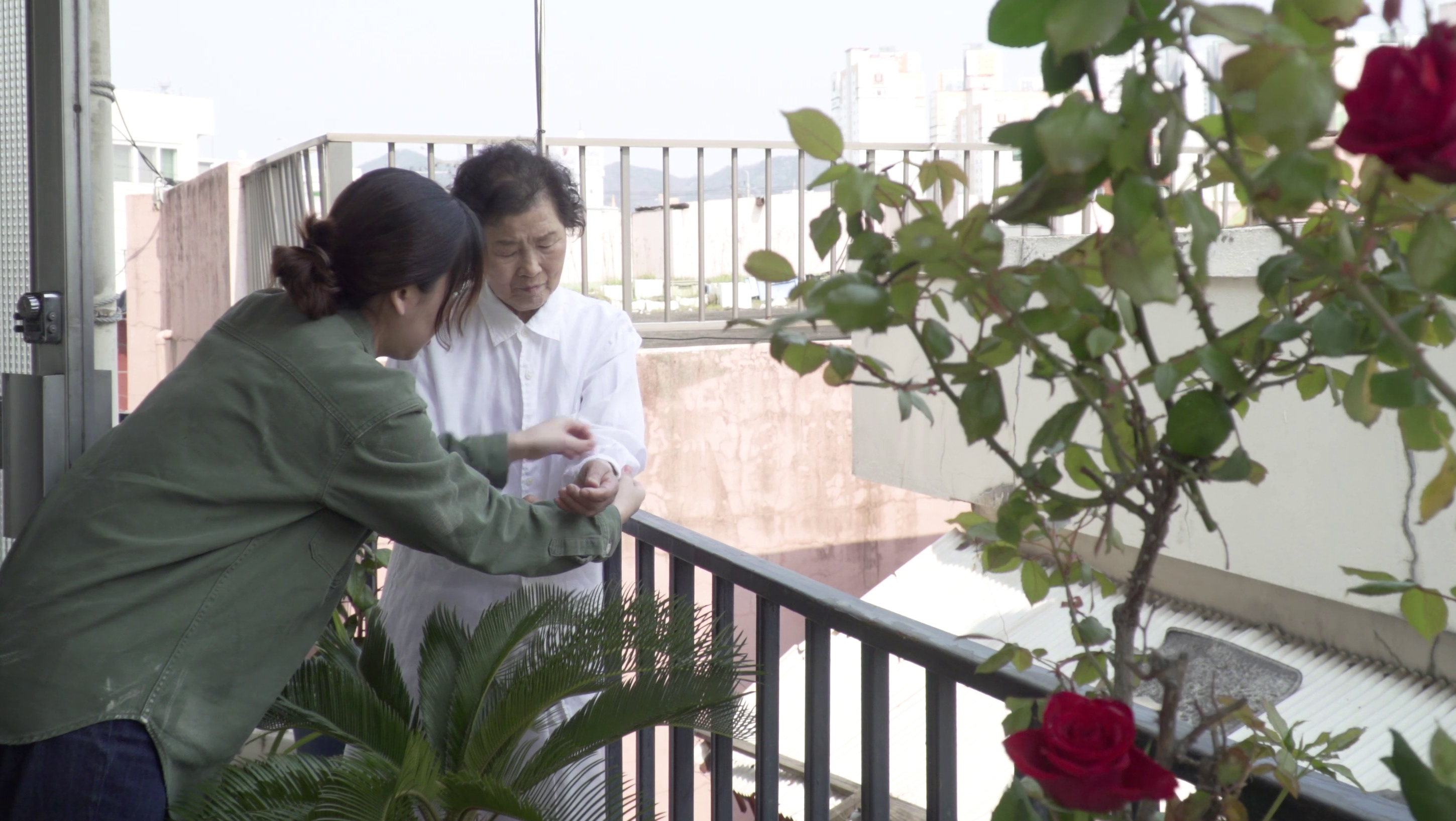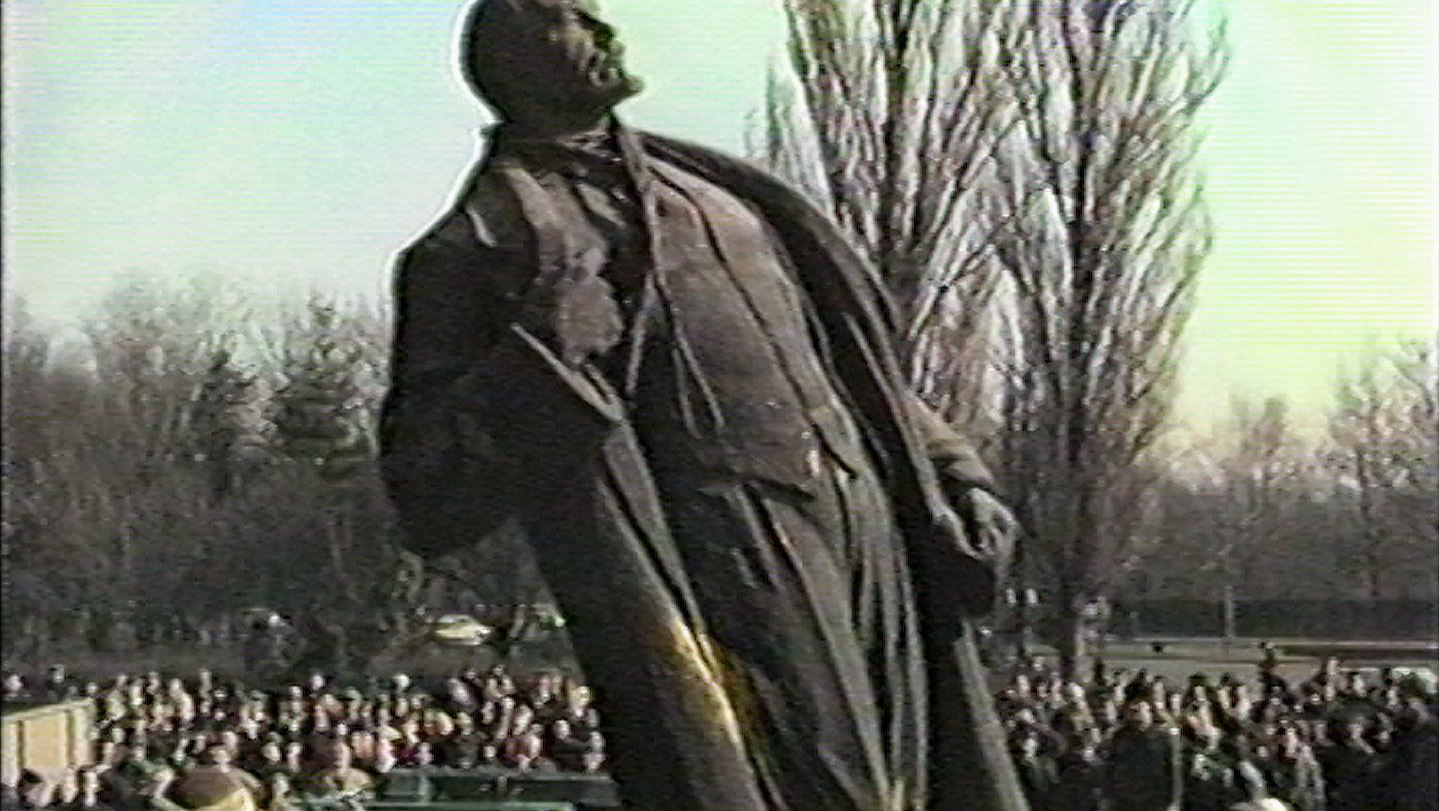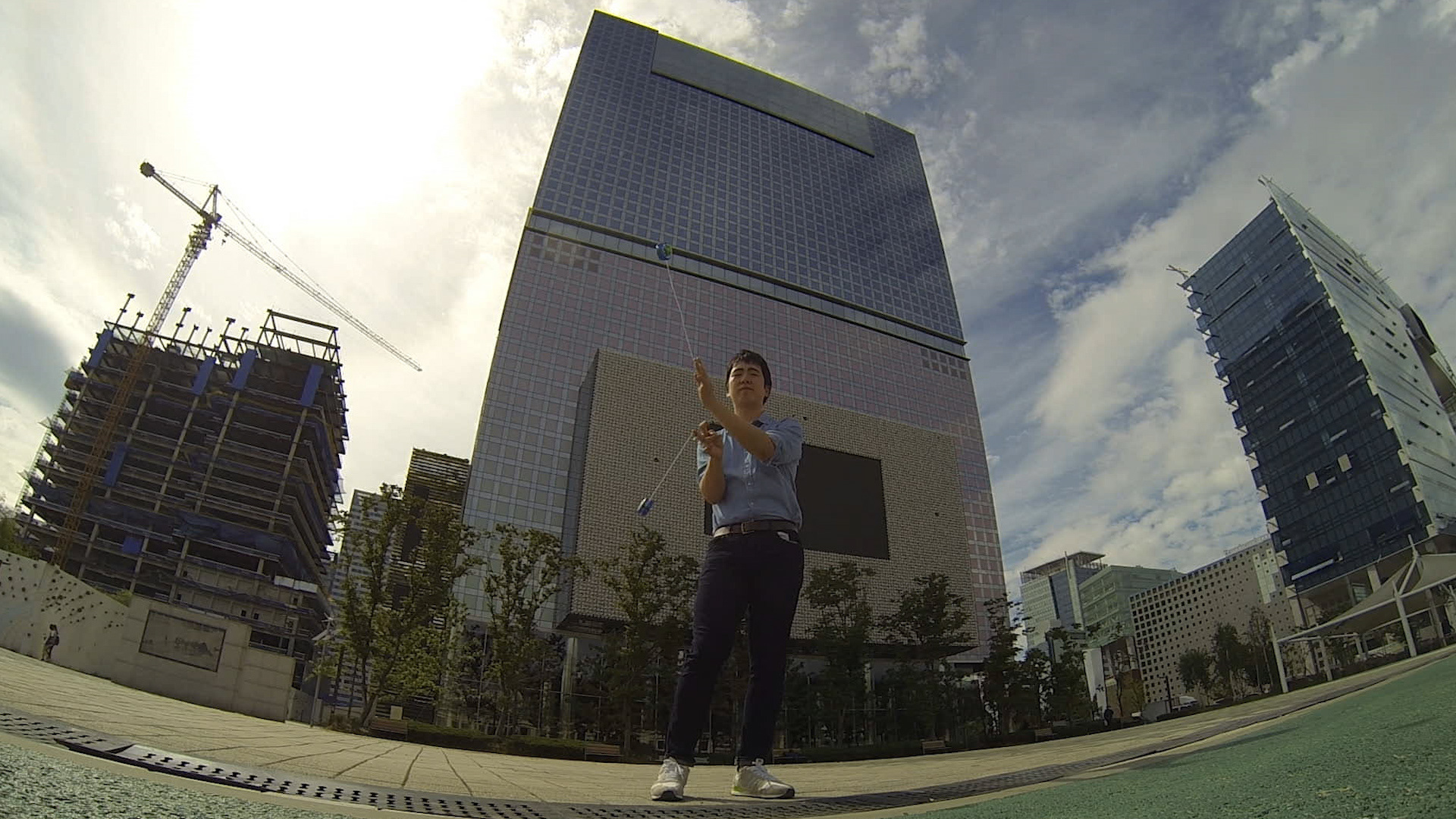The Trail of Grandma's Home Review 옥상자국 리뷰
광주에 위치한 외갓집 옥상에서 오래된 총알자국을 우연히 발견한 감독은 이를 매개로 외할머니의 이야기를 듣게 된다. 당시 광주 사람들에게 5.18은 어떤 존재였을까? 인생과 가족사뿐만 아니라 광주의 지난 비극을 전하는 할머니의 무덤덤한 목소리는 역사의 무게감을 더한다.
The director accidentally finds an old bullet mark on the roof of her grandmother's house in Gwangju. The director hears her grandmother's story through the bullet mark. How do the people of Gwangju remember May 18? Not only the life and family history, but also the quiet voice of an old lady telling the tragedy of Gwangju's past adds to the weight of history.
by 팝업시네마 소개글 Popup cinema's program note
<옥상자국>만의 미덕이라면 차분하지만 경직되지 않은 시선으로 당시 현장에 보았던 사람의 기억을 쳐다보고, 다시 그 차원에서 과거와 현재 모두를 들여다본다는 것이다. 그러한 과정을 통해 영화는 5·18을 단순히 ‘폭동’으로 취급하는 것도 곤란하지만 동시에 민주화 정권 시기에 이루어진 5·18의 ‘신화화’ 역시 가능한지에 대해서 고민하게 된다. 30여 분가량의 짧은 다큐멘터리지만, 그 짧은 시간 안에는 역사를 생각하는 깊은 논의들이 담겨 있다.
The virtue of "The Trail of Grandma's Home" is that it looks at the memory of the person who saw the scene of 5.18 at that time with a calm but not rigid gaze. The director also looks at both the past and the present from her own perspective. In this way, she finds it difficult to treat May 18 simply as a "rebellion," while at the same time considering whether the "mythicization" of May 18 is also possible during the democratic regime. It's a short documentary, about 30 minutes, but in that short time there are deep discussions about history.
by 성상민 SUNG Sang-min (Film Critic https://slownews.kr/48506)
영화 <옥상자국>은 광주에 있는 감독의 외갓집에 있는 총알 자국에 대한 의문에서 시작한다. 그냥 벽도 아닌 복도 천정에 남아 있는 의문스러운 총알 자국. 감독은 할머니에게 질문을 던지고, 할머니는 그날의 기억을 조금씩 꺼내어 놓는다. 짐작하다시피 ‘그날’은 35년 전의 가슴 아픈 참혹한 과거, 광주민주항쟁의 1980년 5월 18일이다.할머니가 들려주는 이야기의 총알 자국처럼 그리고 사진 속에 담겨 있는 엄마와 가족들의 오래된 모습처럼 마치 사라질 것 같지 않은 기억들, 그러니까 역사의 현장을 증언하는 기억들이 고스란히 기록되어 있는 공간의 흔적과 사람들의 기억들도 결국은 한시적일 뿐이다. 80년 당시 항쟁의 중심이었던 금남로 거리에 가득 남아 있는 흔적들도 30년이 넘는 세월 동안 조금씩 사라져가고 있고, 그날을 겪은 사람들의 기억도 언젠가는 사라져가게 될 것이다. 그날의 기억이 기록되어 있는 공간도, 사람도 사라져버린 뒤, 우리에게 남게 되는 역사란 무엇일까?모두가 배웠고, 모두가 알고 있는 5ㆍ18의 역사적 사실마저도 왜곡되고 있는 지금, 외갓집 옥상에 남아 있는 총알자국에 대한 질문으로부터 시작해 할머니와 소박하지만 위대한 대화를 열어가는 영화 <옥상자국>은 다큐멘터리가 지니는 증언과 기록으로서의 가치를 우리에게 다시 한 번 명확하게 상기시켜주는 작품이다.
The film "The Trail of Grandma's Home" begins with a question about the bullet marks in the director's maternal home in Gwangju. Suspicious bullet marks remain on the hall ceiling, not on the wall. The director asks the grandmother questions, and the grandmother brings up the memory of "the day" little by little. As you can imagine, 'The Day' is May 18, 1980 of the Gwangju Democratic Uprising. That is a heartbreaking and tragic past of 35 years ago. Like the bullet marks in the story told by the grandmother, and like the family and mother in the old picture, memories are not likely to disappear. However, the traces of space and people's memories of which the testimonies were recorded are only temporary. Traces of the streets of Geumnam-ro, the center of the 1980 uprising, have been gradually disappearing for more than 30 years. And the memories of the people who went through that day will disappear someday. After the space and people whose memories of the day are recorded disappear, what will history be for us? The historical facts of May 18 that we all learn now are being distorted. The film "The Trail of Grandma's Home" begins with a small question about the bullet marks left on the roof of the maternal house. And the director opens a simple but great conversation with her grandmother. This film makes us feel the value of documentary as testimony and record.
by 박광수 PARK Kwang-soo (A member of the executive committee, Seoul Independent Film Festival 2015)
사람들은 사진을 찍어 사라지는 과거를 붙잡는다. 기억은 변하고 잊히기 때문에 그 순간을 영원히 사진으로 남기는 것이다. 그럼에도 불구하고 기억들은 사라지고 만다. 그런데 기억은 무엇을 위해 존재하는가. 기억은 왜 기억되어야 하는가? <옥상자국>은 이러한 질문을 소탈한 인터뷰와 그에 담긴 시절을 추억하는 ‘사진’을 통해 대답한다. 감독에게 처음 위와 같은 질문을 하게 만들었던 것은 어린 시절을 보냈던 외갓집 옥상에서 발견한 총알 자국이다. 그 시절 태어나지도 않았던 감독은 가족들의 정지된 옛 모습과 함께 총알이 옥상을 스쳤던 가족들의 과거로 다가간다. 감독은 오랜 시간 똑같았을 노인의 나날을 함께하며 익숙한 공간 속에서 광주 항쟁 속 평범한 날을 호출한다. 할머니와 오랜 세월 그 공간들을 공유한 사람들 대부분은 그날의 기억을 언급하기를 회피한다. 그러나 감독은 그들의 외면을 집요하게 파헤쳐 그 속에 숨겨진 분노와 작은 결의를 발견한다. 그러나 그 작은 것은 마지막으로 가면 또 다시 사라진다. 영정 사진을 닦는 할머니는 이제 5.18을 그만 이야기 해야한다고 말한다. 그만두어야 한다는 응답에서 촉발된 작은 불편함으로 인해 사적인 공간은 더 이상 사적인 공간으로 존재하지 않는다. 기억되어야 할 것이 사라지고 있는 상황에서 우리는 무엇을 할 것인가. 각자의 수많은 ‘기억’들이 뒤죽박죽된 교과서 밖의 역사들을 우리는 어떻게 기억해야할 것인가. 어릴 적 사진과 공간이 지나간다. 그것은 비어있되 비어있지 않다.
People take pictures, capturing the past that is disappearing. Memories change and are forgotten, leaving the moment as images forever. Nevertheless, memories fade. But what is the purpose of memory? Why should memories be remembered? "The Trail of Grandma's Home" answers these questions through a simple interview and photographs that recall the days in her home. The bullet marks she found on the ceiling of her grandmother's house, where she spent her childhood, prompted the director to ask the aforementioned questions. The director was not even born in 1980. However, the director approaches the family's past through photographs that show the family's suspended appearance. The director shares her repetitive daily life and recalls her memories of ordinary days during the Gwangju Uprising in a familiar space. Most of those who have shared the space with her grandmother for many years avoid mentioning the memories of that day. But the director persistently digs into her exterior and discovers the anger and small determination hidden within. But they disappear again at the end of the film. The grandmother, who is wiping the portrait, says she should stop talking about 5.18. Because of the small inconvenience caused by the words, private spaces no longer exist as private spaces. What are we going to do at a time when something worth remembering is disappearing? How should we remember history outside the textbook, where so many "memories" of each person have been mixed up? Images and spaces of childhood pass by. It is empty, but not empty.
by 이상연 LEE Sangyeon (Student of Cinema studies at School of Film, TV & Multimedia in K-arts)
말을 건네기조차 쉽지 않았던 할머니의 기억은 점차 손녀의 카메라 앞에서 그날들의 이야기로 나타난다. 양동시장에서 장사를 하고 있던 그 날로부터 되짚어나가는 하루하루는 40여 년 가까이 지난 지금에도 여전히 생생하여, 잘 모른다고 말하던 할머니의 기억 속에 남아있는 그 날들의 상황과 감정이 선명하게 펼쳐진다. 손녀에게 꺼내 보이던 기억의 발화는 시장 상인들과 이모할머니를 만나며 개인사를 넘어 공동의 기억으로 점차 확장되어 간다. 이처럼 변화해가는 할머니의 모습은 ‘손녀’의 카메라이기에 가능했다고 우리는 쉽게 짐작해볼 수 있을 것이다. 다수의 다큐멘터리 카메라가 감독의 사적 관계로부터 출발함에 있어 이를 한계로 치부해버리는 경우가 많지만, ‘그렇기에’ 가능한 기록과 성찰이 존재하고, 쓰이지 않은 역사를 기록하는 유일 존재로서 이들 카메라의 유의미함 또한 놓치지 말아야 할 것이다. (...) 한 여성의 삶과 역사를 통해 광주를 바라보고, 광주의 역사를 통해 한 여성의 삶을 돌아보는 이 영화는, 감독 자신을 비롯하여 경험하지 않은 세대 저마다의 현재적 질문으로 우리에게 주어진다.
At first, it wasn't easy for the director to talk to the grandmother. Then gradually, in front of the camera, the grandmother told the story of the day. The grandmother recalls every day from her memory of doing business in Yangdong Market. The memory is still vivid after almost 40 years. Before she knows it, she clearly expresses the situation and feelings of those days that remain in her memory. The director gradually moves beyond the personal story to a shared memory by meeting with the market merchants and grandmother's sister. The change in grandmother's behavior was possible because the director is her granddaughter. Many documentaries consider personal stories as a limitation. But there are possible records and reflections in personal relationships. In recording the omitted history, the camera based on personal relationships plays an important role. (...) Looking at the May 18 Uprising through the life and history of a woman, and looking back on the life of a woman through the history of the May 18 Uprising, the film is given to us as a present question for every generation, including the director herself, who did not experience the May 18 Uprising.
by 최민아 CHOI Min-A (Activist, Seoul Indie Documentary film Festival) http://www.purzoom.com/article_detail.php?articleId=113
<옥상자국>은 1980년 5월 18일 일어났던 역사적 소용돌이와 그 속에서 평범한 개인이 가지고 있는 기억을 결부시킨다. 역사(歷史)는 기록되지만, 개인사(個人史)는 기록되지 않는다. 외할머니의 기억처럼 서서히 잊힐 뿐이다. <옥상자국>은 역사란 결코 책에만 있는 것이 아니라 나 자신과 우리 주변의 이야기라는 것을 알려준다.
"The Trail of Grandma's Home" connects the historical maelstrom of May 18 with the memories of ordinary people within it. National history is recorded, but personal history is not. Like the memory of my maternal grandmother, it is slowly being forgotten. "The Trail of Grandma's Home" tells us that history is not only in textbooks, but also in us and around us.by 김경봉 KIM Kyung-bong(audience reviewer, Seoul Independent Film Festival 2015) http://indienow.kr/?p=2390
2015년 2회 사람사는세상영화제와 13회 아시아나국제단편영화제 국내경쟁 대상작이기도 한 양주연 감독의 <옥상자국>은, 2010년대 이후 한국 독립다큐계의 주요 경향인 ‘사적 다큐’의 범위 안에서 <오월愛>의 경향을 심화해낸 작품으로 평가받는다. 감독의 외가에서 우연히 발견된 총알 자국에서 시작된 의문을 풀어내면서 누군가에겐 ‘신화’로 기억되지만 평범한 이들에겐 잊혀져가는 80년 5월에 대한 반추로 나아가는 맛이 독특한 단편 다큐이다.
Yang Juyeon's "The Trail of Grandma's Home" is the grand prize winner of the 2nㅇ Saram-Sesang Film Festival and the 13th Asiana International Short Film Festival in 2015. The film is regarded as a work that deepened the theme of "No Name Stars" (KIM Tae-il :2010) in the field of "personal approach" in the main trend of the Korean independent documentary scene since the 2010s. The movie deals with questions that began with bullet marks found by chance in the house of the director's grandmother. As a result, it is remembered as a "myth" by many, but goes on to reflect on the May 1980s, which is forgotten by ordinary people. In this sense, it is a short documentary film with a unique flavor.
by 김상목 KIM Sang-mok (Programer of Social Welfare Film Festival in Daegu) https://bit.ly/2YAnbGl





